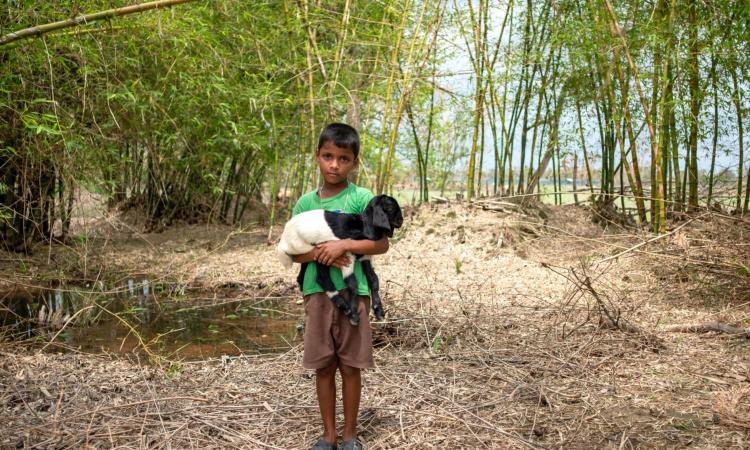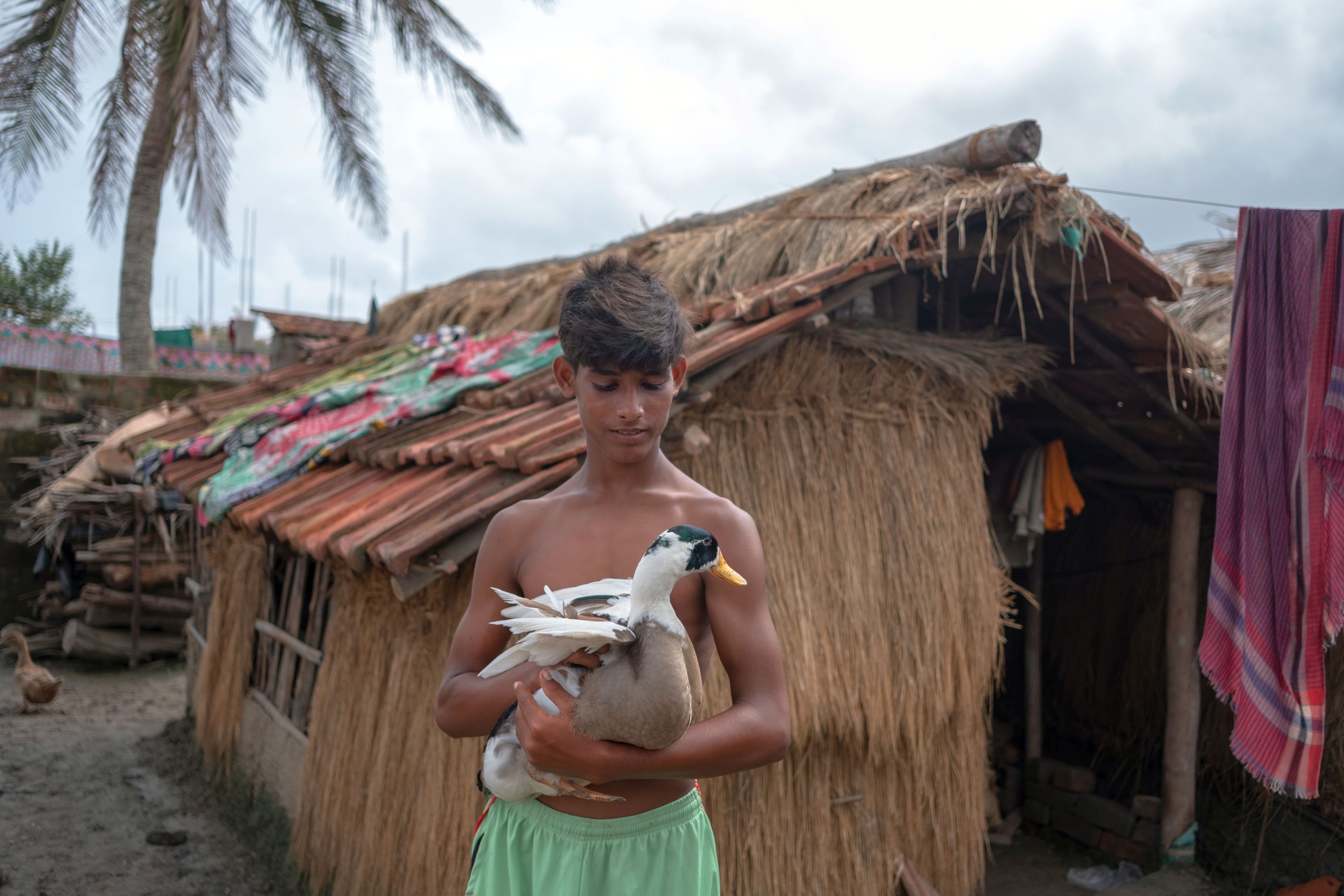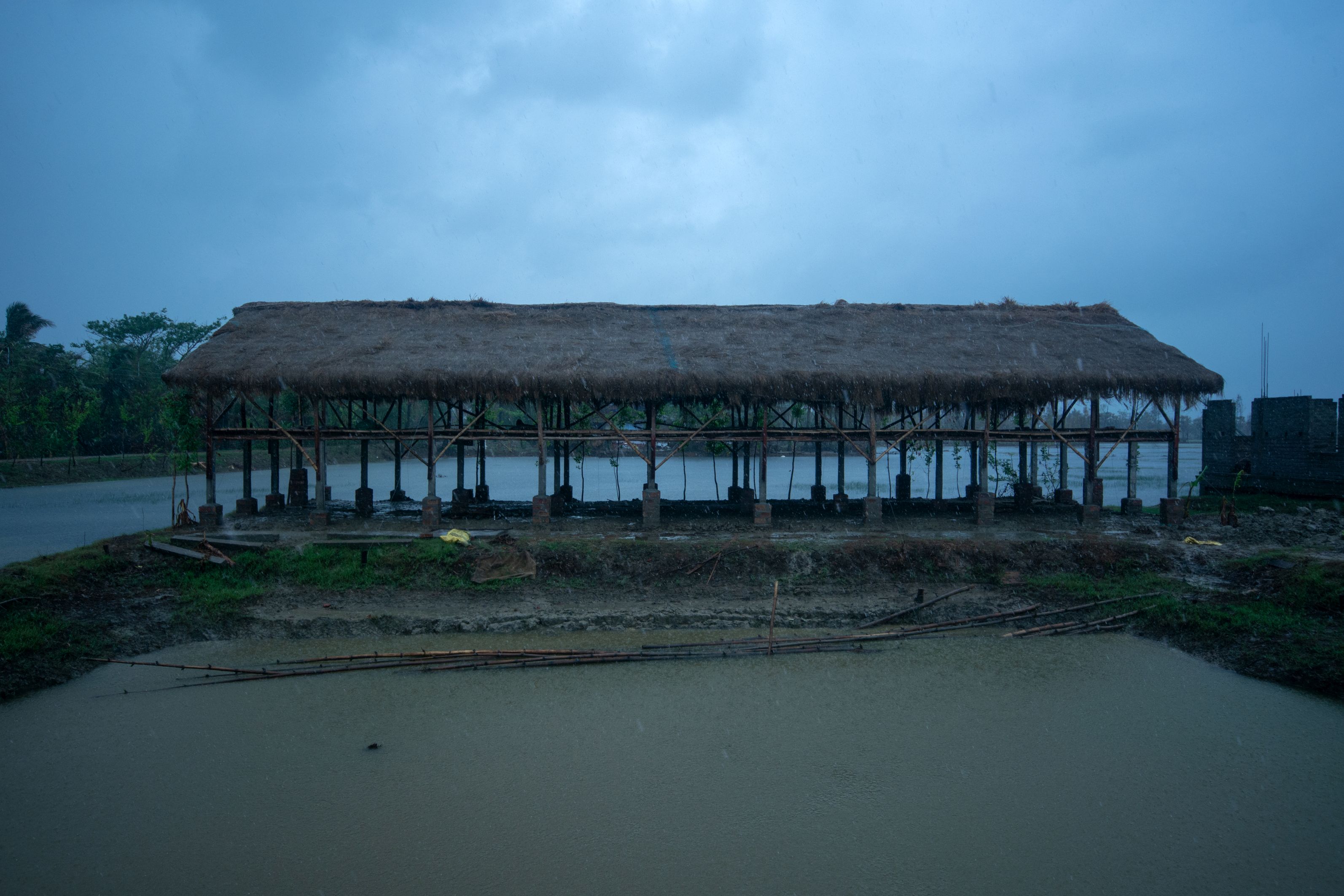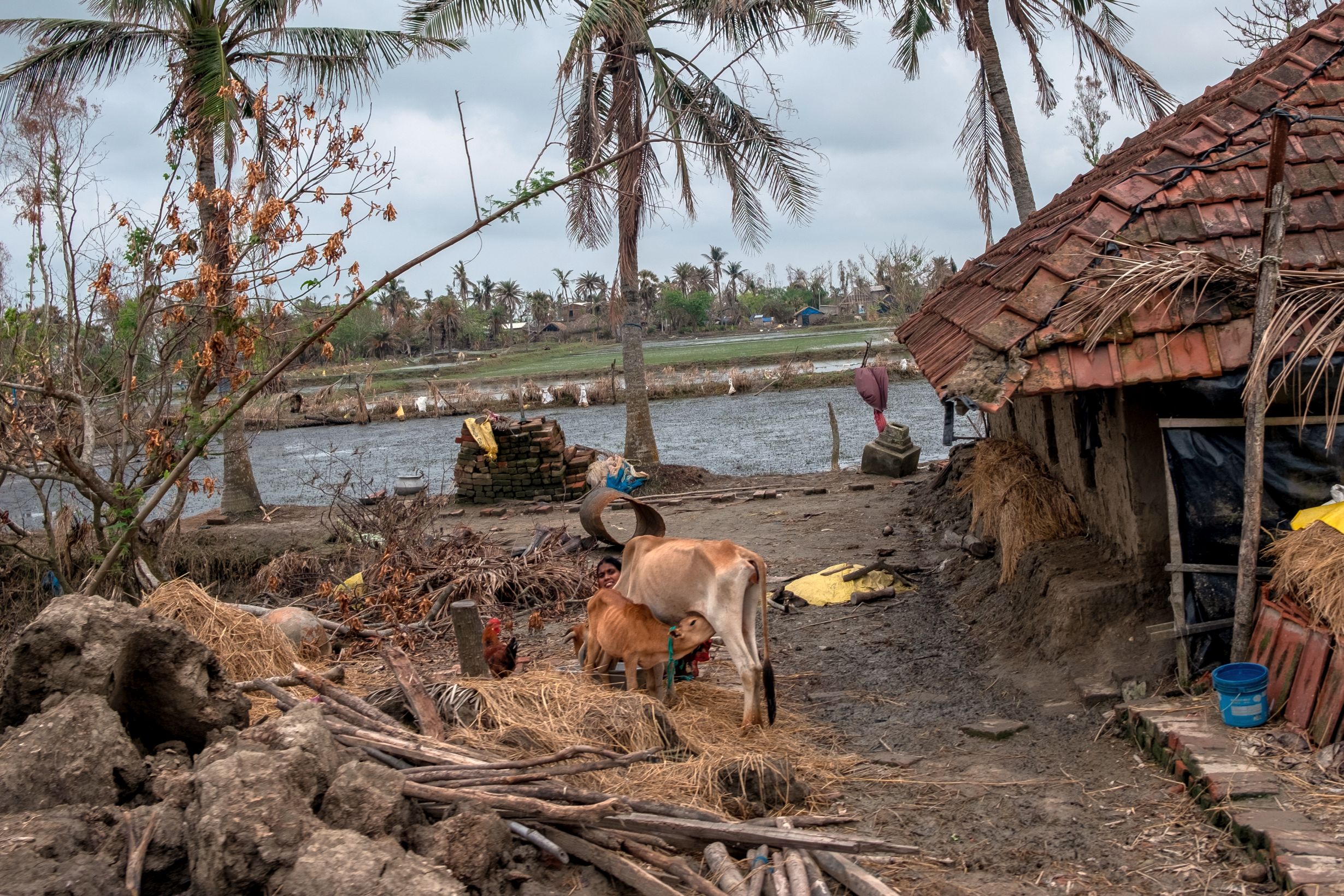
The Amphan cyclone that struck the Sundarbans in the month of May this year has wreaked havoc in the area destroying lives and livelihood. A lot of the locals living in the Sundarbans depend on animal husbandry and fishing to earn a living. The cyclone destroyed animal rearing shelters and swept away most of the cattle and domestic animals. The saline water that entered ponds and lakes resulted in locals having to dispose of fish which could have earned these people income.
After the Aila storm in 2009, the region had already suffered quite a lot. The locals had to move to other states to earn more than the meagre incomes that they were managing at home due to the irreversible devastation caused by Aila. Recently, because of the coronavirus pandemic, all those locals had to move back and the concurrent cyclone has made the villagers despondent and exacerbated their suffering.







Animal husbandry and fishing, as can be seen in the pictures, has been affected to a very large extent with entire animal rearing centres being destroyed and records being washed away. They have no way to earn from home through animal husbandry and fishing nor can they go to other states to find jobs because of the ongoing lockdown. With almost all existing infrastructure being torn down due to the cyclone, locals will have to build everything back again and set up their businesses all over again which will be extremely tough especially since their problems have been exacerbated due to the pandemic.
/articles/livestock-rearers-and-fishers-bear-brunt-cyclone-amphan